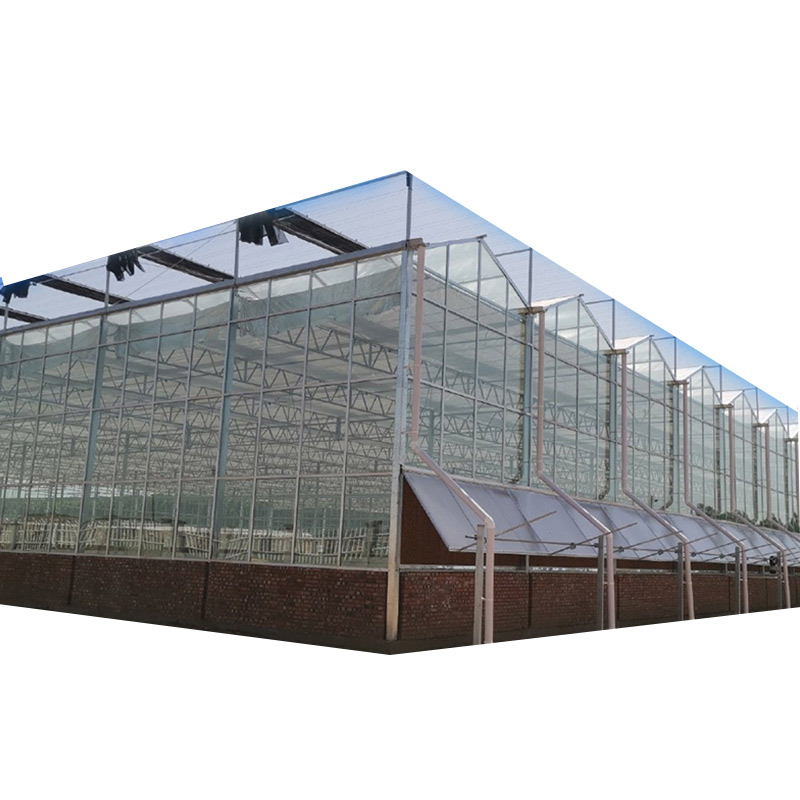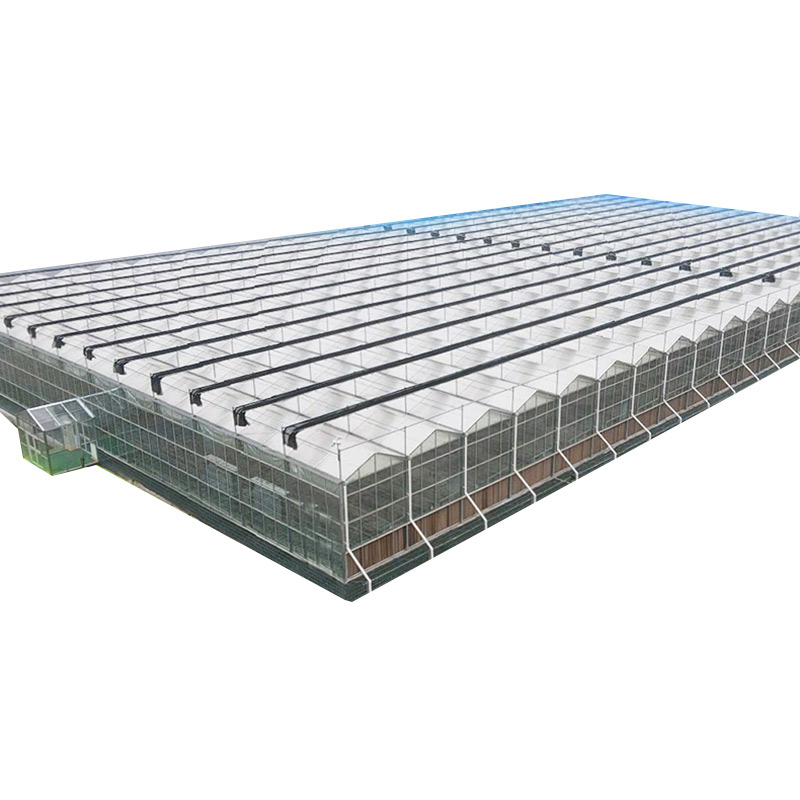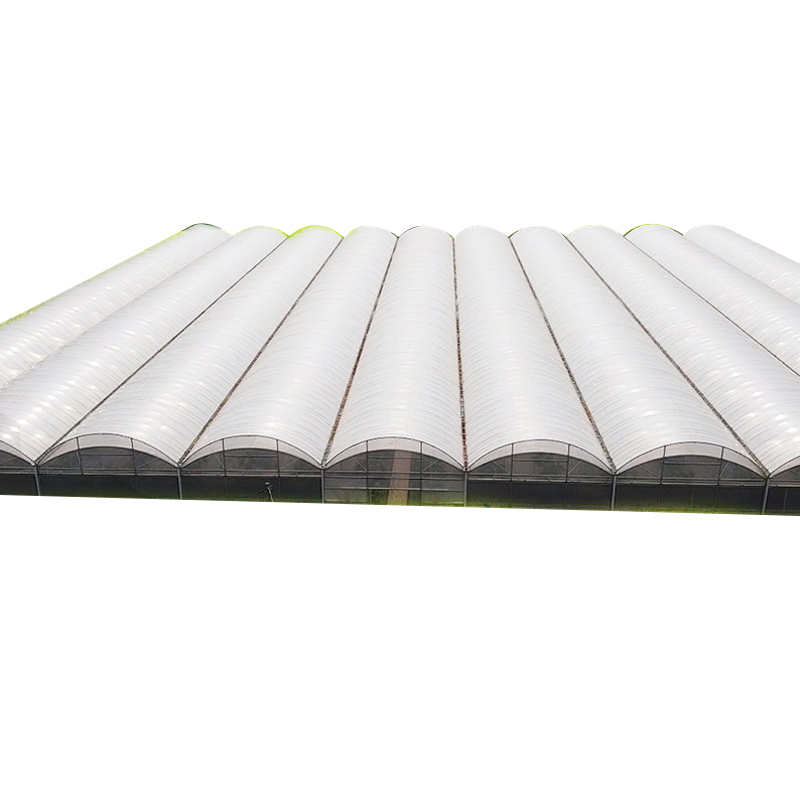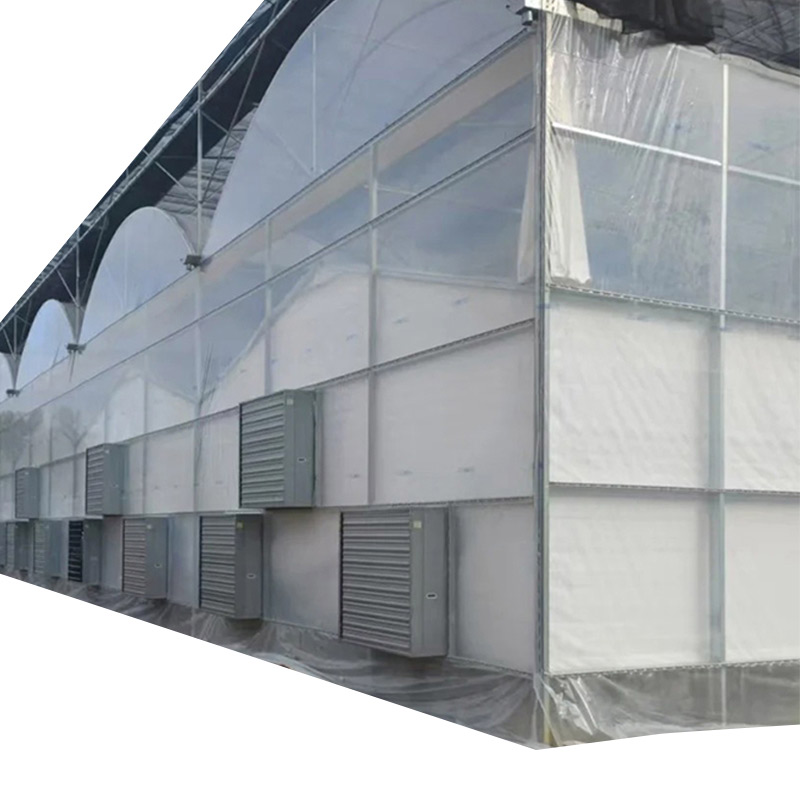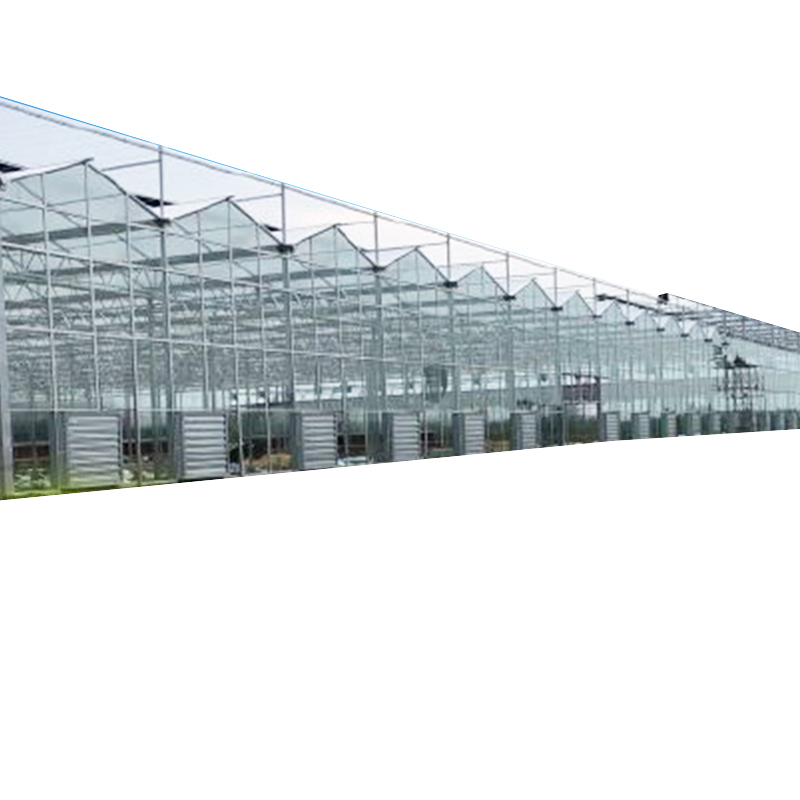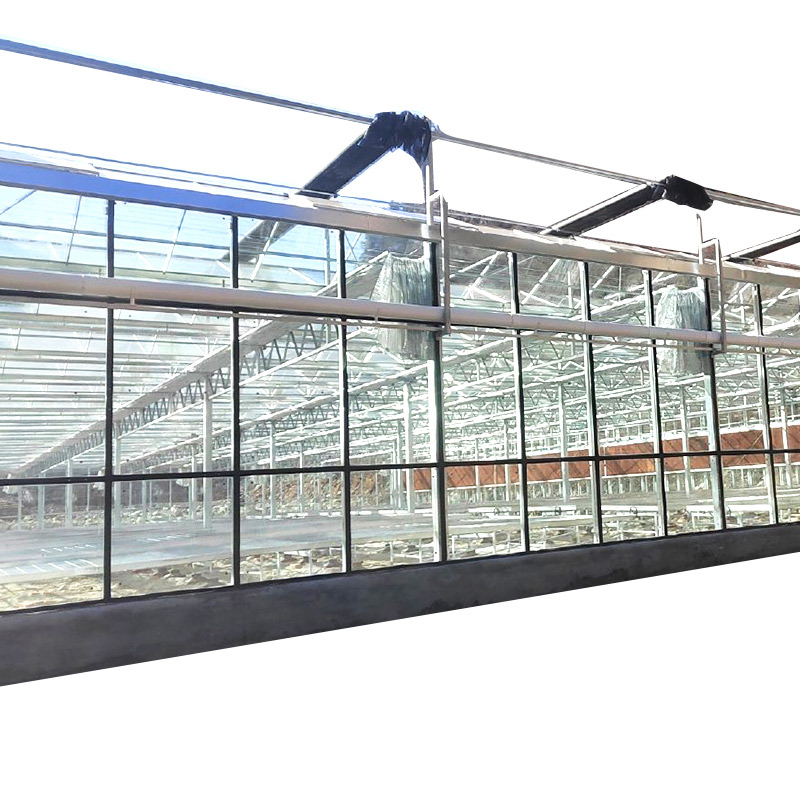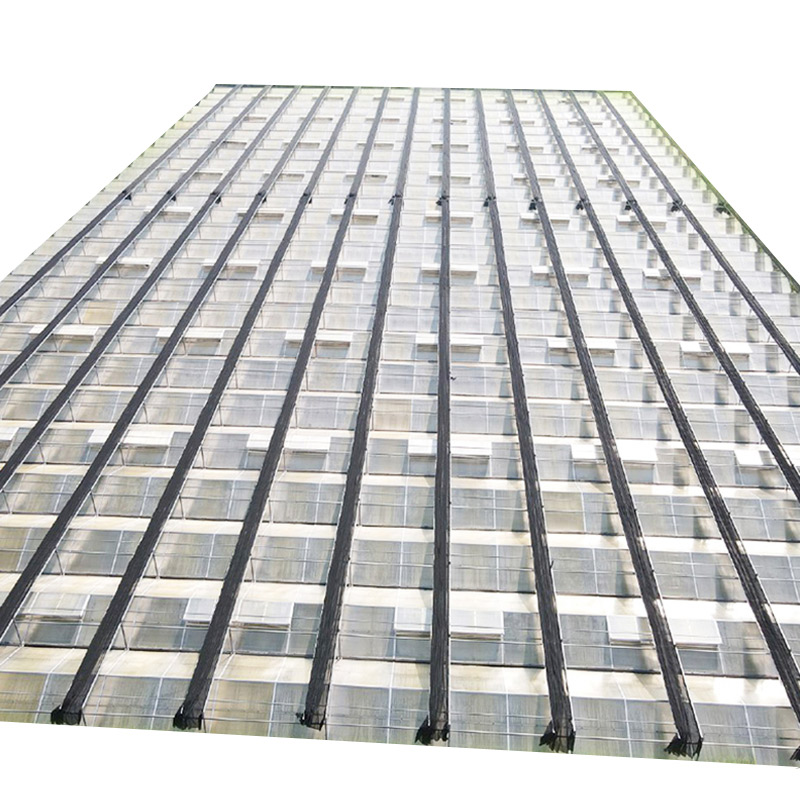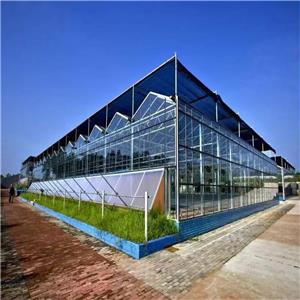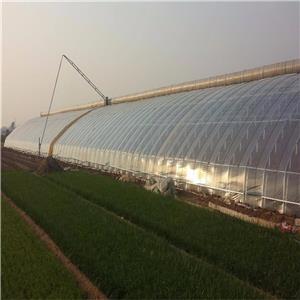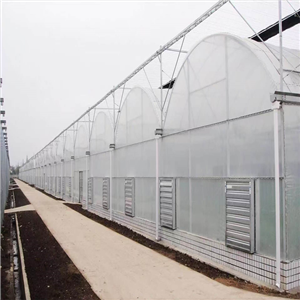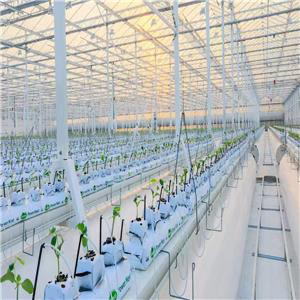
high light transmission polycarbonate greenhouse,linkage type polycarbonate greenhouse and steel structure polycarbonate greenhouse are engineered for crops requiring intense illumination, featuring ultra-clear multi-wall panels that deliver 90-94% visible light transmission – rivaling glass clarity while providing superior insulation and durability.
Hight Light Transmission Linked Steel Multi-layer Polycarbonate Greenhouse
1. Introduction to High Light Transmission Greenhouses and high light transmission polycarbonate greenhouse
High light transmission polycarbonate greenhouses represent the pinnacle of photosynthetic efficiency engineering, combining the clarity of glass with superior durability and insulation. These structures utilize advanced polymer formulations to achieve 90-94% visible light transmission – critical for crops like tomatoes, cannabis, and leafy greens where 1% more light = 1% higher yields (University of Wageningen, 2022).
Key Innovations of high light transmission polycarbonate greenhouse
Nano-coated surfaces reduce light refraction
Micro-prismatic diffusion layers eliminate shadows
UV-selective filtration protects plants while passing beneficial wavelengths
2. Optical Science of linkage type polycarbonate greenhouse , linkage type polycarbonate greenhouse and steel structure polycarbonate greenhouse
Light Transmission Mechanics
| Wavelength | Transmission % | Plant Impact |
|---|---|---|
| PAR (400-700nm) | 90-94% | Direct photosynthesis |
| UV-A (315-400nm) | 0% (blocked) | Prevents DNA damage |
| Far-Red (700-800nm) | 88% | Stimulates flowering |
Comparative Performance
| Material | Light Transmission | Haze % | 10-Year Degradation |
|---|---|---|---|
| Glass | 92% | 0% | 2-3% loss |
| Standard PC | 82% | 25% | 15% loss |
| High-Tech PC | 93% | 12% | <5% loss |
3. Structural Advantages of linkage type polycarbonate greenhouse and steel structure polycarbonate greenhouse
Versus Glass:
✔ 200x more impact resistant (ASTM D256)
✔ 50% lighter weight (3kg/m² vs 6kg/m²)
✔ 3x better thermal insulation (U-value 1.0 vs 3.0)
Versus Polyethylene:
✔ 10x longer lifespan (15-20 years vs 2-3)
✔ 85% less condensation
✔ Precision spectral control
4. Multi-Wall Panel Technology
Panel Types Comparison of linkage type polycarbonate greenhouse and steel structure polycarbonate greenhouse
| Type | Light Transmission | R-Value | Best Use |
|---|---|---|---|
| 4mm Twin-Wall | 88% | 1.7 | Mild climates |
| 6mm Triple-Wall | 86% | 2.3 | 4-season growing |
| 16mm X-Structure | 84% | 3.5 | Arctic conditions |
Innovative Features of steel structure polycarbonate greenhouse
Laser-cut ventilation channels (reduce light blockage)
Anti-dust coatings (maintain >90% clarity for 5+ years)
Prismatic light guides (redirect low-angle winter light)
5. Light Spectrum Optimization of steel structure polycarbonate greenhouse
Crop-Specific Recipes:
Tomatoes (High-Light Varieties):
DLI Requirement: 25-30 mol/m²/day
Spectral Enhancements:
15% blue boost (450nm) for compact growth
Far-red priming at sunset
Cannabis (Medical Grade):
UV-B Exclusion: Blocks <300nm to prevent THC degradation
IR Rejection: Reduces cooling loads
6. Thermal Performance
Insulation Metrics:
U-value: 0.58 W/m²K (triple-wall)
Condensation Resistance: 0.85 (1=perfect)
Solar Heat Gain Coefficient: 0.78
Energy Savings:
40% reduction in heating costs vs glass
6-8°C warmer than PE film at night
7. Durability Testing
Hail Resistance: Passes 2" ice ball @ 90mph (UL 2218 Class 4)
Wind Load: 130mph certification (Miami-Dade County)
Fire Rating: B1 (DIN 4102)
8. Commercial Crop Designs
Tomato Greenhouse:
Panel Type: 8mm clear twin-wall
Light Augmentation: Movable shade screens (40% Aluminet)
Yield Increase: 22% over standard PC
Cannabis Facility:
Light Diffusion: 15° haze for canopy penetration
Security: Opaque lower walls + clear roof
9. UV Management
100% UV-A/B blocking protects plants/polymer
Controlled UV-C zones for sterilization
10. Condensation Control
Hydrophobic nano-coatings (contact angle >110°)
Channeled condensate drainage
11. Ventilation Integration
Automated ridge vents (30% airflow boost)
Light-preserving sidewalls (mesh vs solid)
12. Climate Adaptations
Desert Regions:
IR-reflective outer layers
Sand-resistant surface treatments
Nordic Locations:
Snow-load optimized frames
Light-redirecting prism panels
13. Installation Protocols
Foundation: Laser-leveled aluminum rails
Panel Mounting: Thermal-break gaskets
Sealing: Silicone-free EPDM gaskets
14. Maintenance
Annual: Photometric testing
5-Year: Anti-condensation coating refresh
15. Yield Studies
| Crop | Yield Increase | Energy Savings |
|---|---|---|
| Tomatoes | +19% | 38% |
| Lettuce | +27% | 42% |
| Roses | +15% | 31% |
16. Energy Analysis
Annual PV Potential: 35kWh/m² (solar-ready roofs)
Light Loss Compensation: 8% less supplemental LED needed
17. Cost Breakdown
| Component | Cost Premium | Payback Period |
|---|---|---|
| High-Tech Panels | +15% | 2.3 years |
| Optical Coatings | +8% | 1.1 years |
18. Automation
Light sensors trigger dynamic shading
Self-cleaning panels (electrostatic)
19. Photon-Efficient Crops
Top Performers:
Cherry tomatoes
Basil
Chrysanthemums
20. Case Studies
Netherlands Tomato Farm:
5ha high-light PC greenhouse
31kg/m² annual yield (vs 25kg industry avg)
21. Future Innovations
Quantum dot-enhanced panels (spectral shifting)
Self-healing surfaces
22. Troubleshooting
Issue: 5% annual light loss
Solution: Replace anti-reflective coating
23. Certifications
ISO 14025 (environmental impact)
CE EN 16983 (optical performance)
24. FAQs
Q: How often should light transmission be tested?
A: Annually with a PAR meter
25. Conclusion
High light transmission polycarbonate greenhouses deliver unmatched photosynthetic efficiency, durability, and climate control – making them the premier choice for commercial growers where light equals profit.

